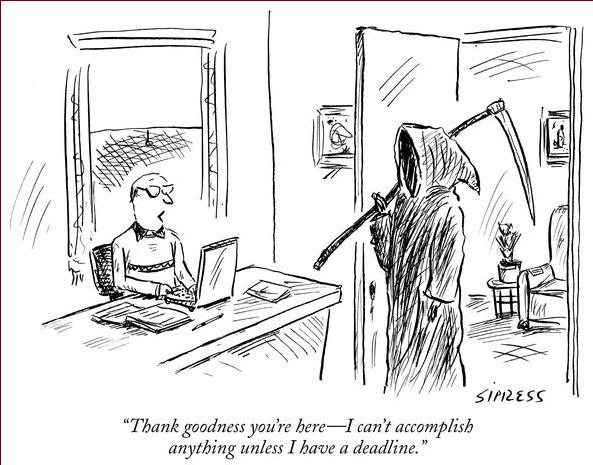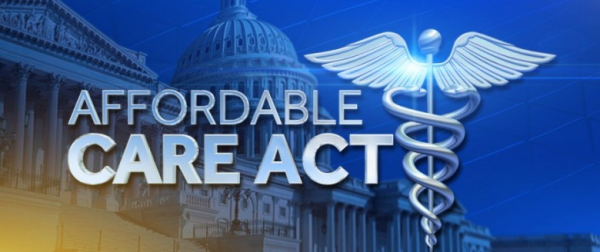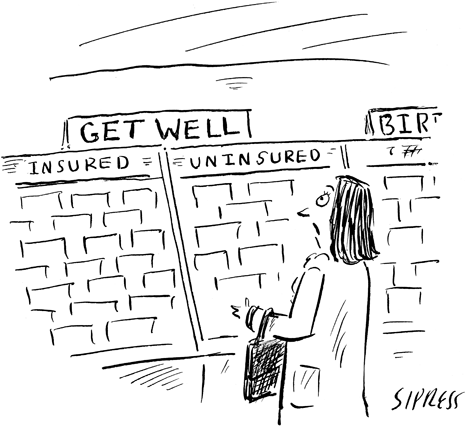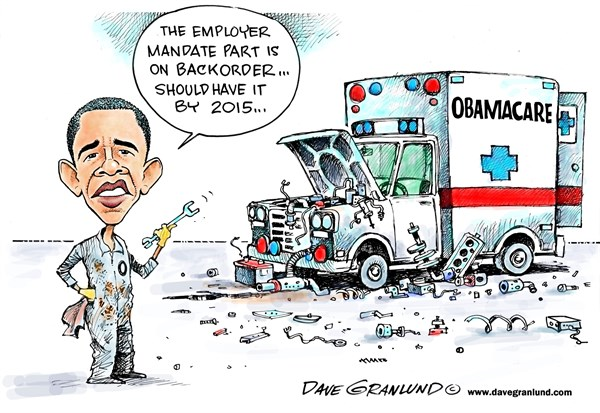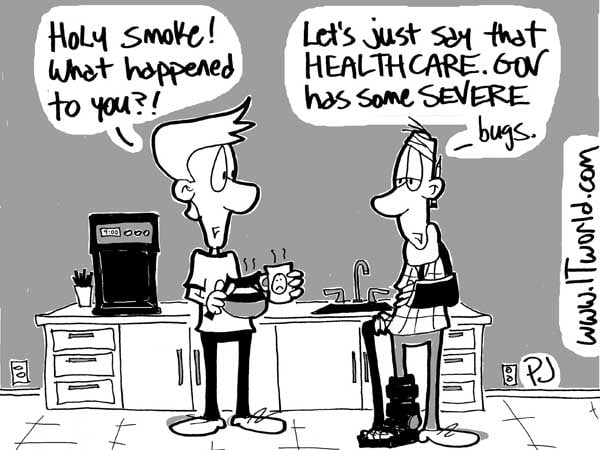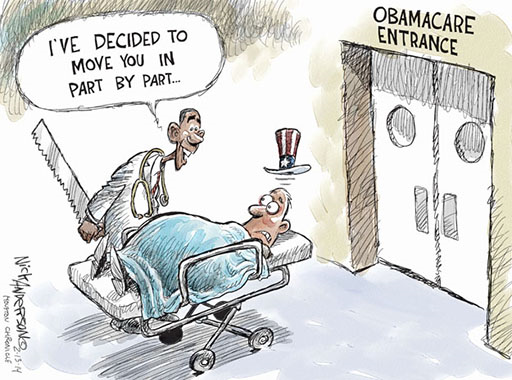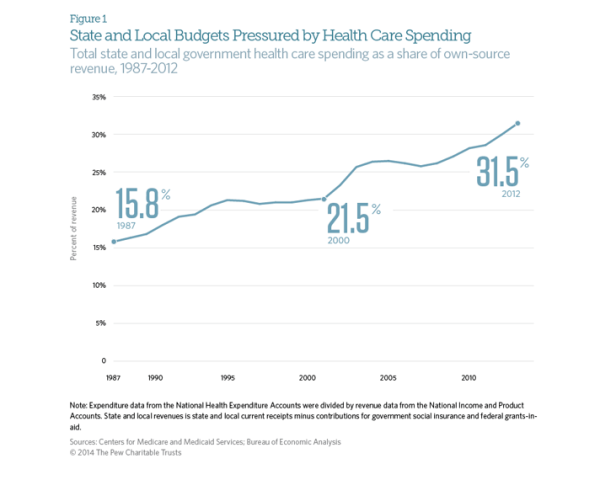The Obama administration on Friday announced updates to model notices informing workers of their eligibility to continue health-care coverage through the Consolidated Omnibus Budget Reconciliation Act, or Cobra. The updates make it clear to workers that if they are eligible for COBRA continuation coverage when leaving a job, they may choose to instead purchase coverage through the Health Insurance Marketplace.
Medical Billing Blog
Update - 8 Million Enrolled under the Affordable Care Act
President Obama announced Thursday that eight million people have signed up for health insurance under the Affordable Care Act, including what the White House said were a sufficient number of young, healthy adults. The total number of enrollees exceeds by a million the target set by the administration for people to buy insurance through government-run health care exchanges. In particular, the number of young people signing up appears to have surged during the final weeks of enrollment. Speaking at an impromptu news conference, the president described how the law has helped make a difference for ordinary citizens. Along with the eight million enrollments through the exchange, the White House released figures on other aspects of the law. Three million Americans enrolled in Medicaid and the Children’s Health Insurance Program, five million people enrolled in health plans that meet ACA standards but were sold outside the exchange and 3 million young adults (under the age of 26) were able to stay on their parents’ plan.
March 23rd marked the four-year anniversary of enactment of the Affordable Care Act (ACA). Most of the past four years have been spent developing the infrastructure and refining the policies to implement the law. Implementation began on October 1st, 2013, when the first open enrollment period went live. Now, as the first open enrollment period comes to an end, it seems like an appropriate opportunity to examine the state of the ACA as “phase one” comes to an end.
According to study, America has 32 million underinsured.
As Monday's deadline to sign up for health insurance or face a penalty approaches, there's plenty of attention on the uninsured. But how about the underinsured? A new report finds that 32 million people were underinsured in the U.S. in 2012, meaning their health insurance didn’t do enough to protect them from major medical costs, according to a new report from the Commonwealth Fund. That makes for 80 million Americans who either have no health insurance at all, or who don’t have enough, the report finds. The Affordable Care Act insurance reforms seek to expand coverage and to improve the affordability of care and premiums.
Kathleen Sebelius, the secretary of health and human services, said Wednesday that the Obama administration would not extend the deadline for people to sign up for health insurance or delay the requirement for most Americans to have coverage. There will also be no delay in the penalty most Americans face under President Barack Obama's healthcare reform law if they fail to obtain health coverage this year. Last year, embracing nonpartisan estimates for the Affordable Care Act, Health and Human Services Secretary Kathleen Sebelius set a benchmark for the new insurance marketplaces: "Success looks like at least 7 million people having signed up by the end of March 2014," she said to NBC. Enrollment, however, began at a terribly slow pace in October because of all the technical problems with HealthCare.gov, the federal health exchange website serving 36 states. Some state-run health exchange websites have had their own problems as well. Within that context, Sebelius on Wednesday redefined what success looks like: "Success looks like millions of people with affordable health coverage, which we will have by the end of March," she told the House Ways and Means Committee. The administration released the latest enrollment figures on Tuesday—revealing that some 4.2 million Americans have signed up for coverage on the new exchanges. However, that figure does not include how many people have actually paid for their plans—a metric that could make the actual number of enrollees significantly lower.
DOL Issues Final Rule on Worker Eligibility for Health Insurance
The U.S. Department of Labor has issued a final rule that prohibits employers from requiring employees to wait more than 90 days after being hired before they can be covered by the Company’s sponsored health insurance plan.
Now Available: Subsidies for Insurance Policies Bought Outside Exchange
With just a month left for Americans to select health plans this year through new insurance marketplaces, the Obama administration is bending some rules to prevent people from being stranded without coverage, especially those in states where their own state-run online exchange has failed disastrously. The new policy applies to people who — because of “technical issues” — were prevented in trying to buy insurance through an online exchange and signed up for a health plan outside the marketplace. They will now be allowed to sign up for coverage in the exchange and get federal subsidies “on a retroactive basis,” going back to the date on which they first enrolled in a health plan outside the exchange. The state-run exchanges in some of these states — Oregon, Maryland, Massachusetts and Hawaii in particular — have experienced more technical problems than even the federal website. Consumers in those states are still having difficulty enrolling five months after the launch. Federal officials said they had agreed to provide such assistance retroactively because technical problems had prevented consumers from using online exchanges to obtain insurance and financial aid in some states. The Obama administration’s decision came as a surprise because the Affordable Care Act is clear: Federal subsidies are available only to people who enroll in a “qualified health plan” through an exchange. The HHS change will allow those who tried to sign up on their state-run exchanges, but couldn’t, to retroactively obtain the subsidies they would have been eligible for, even if they ended up purchasing healthcare through a private insurer. The privately purchased plans must still meet certain basic requirements of the healthcare law.
Healthcare.gov's Payment System Months from Completion
The federal government may not completely finish the automated payment system for Healthcare.gov for “several months,” White House spokesman Jay Carney said Friday. Until that system is fully running, the administration won’t be able to verify how many of the consumers who signed up for through the health insurance website are, in fact, paying their premiums and are hence truly enrolled. The administration reported earlier in the week that nearly 3.3 million people have selected plans on through the marketplace as of Feb. 1. However, insurance companies are saying that about 20 percent of those people failed to pay their premiums on time and consequently didn’t receive coverage in January, the New York Times reports. Paying the first month’s premium is the final step in completing an enrollment. Under federal rules, people must pay the initial premium to have coverage take effect. In view of the chaotic debut of the federal marketplace and many state exchanges, the White House urged insurers to give people more time, and many agreed to do so. But, insurers said, some people missed even the extended deadlines.
On January 17th, CMS announced a new policy regarding Freedom of Information Act (FOIA) requests for the disclosure of how much Medicare pays individual physicians. For the past 30 years, this information has been protected from FOIA requests under the Personal Privacy Exemption (Exemption 6) of the act. Under the new policy,CMS will begin examining each FOIA request on a case-by-case basis to determine if the information requested should be exempt from FOIA requests.
State and Local Governments Spend 31.5% on Healthcare
The Affordable Care Act was supposed to stem the rapidly rising cost of healthcare in the United States. While costs have continued to rise since the ACA’s passage in 2010, the rate has slowed dramatically. Early indicators suggest that the growth rate of total healthcare spending in the US was only 4% in 2012. This is an improvement when looking at the aggregate expenditures, unfortunately, for state and local governments, the cost curve has not had any form of reduction. According to CMS and the Bureau of Economic Analysis, state and local governments spent 31.5% of their budgets on healthcare costs in 2012. That represents an 8 percent increase over the previous year, or a rate twice as fast as the national rate of increase. This increase is largely due in part to the stimulus bill passed by Congress in 2009. The American recovery and Reinvestment Act granted more than $100 billion to states to cover increasing Medicaid costs, which had ballooned during the recession as high unemployment drove job-seekers to the government run health program. During this period, even though Medicaid saw increased participants, overall state spending on Mediciad actually fell. However, the federal stimulus money would not last forever and State Mediciad expenditures rose 22 percent between 2010 and 2011, and another 15 percent in 2012. The Government Accountability Office says health-care spending represents the single greatest threat to state and local government long-term health.


